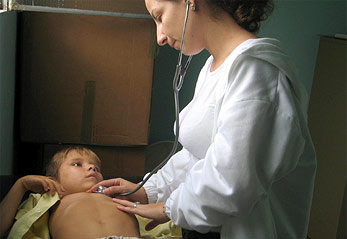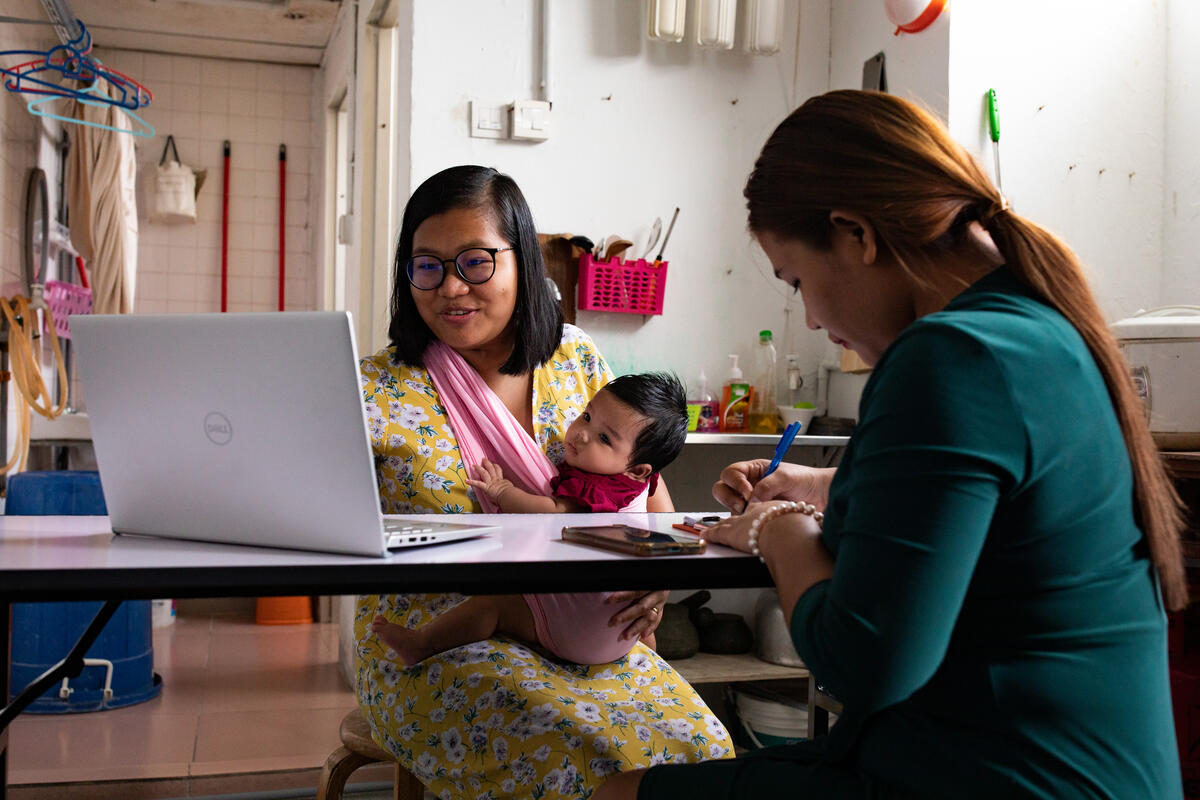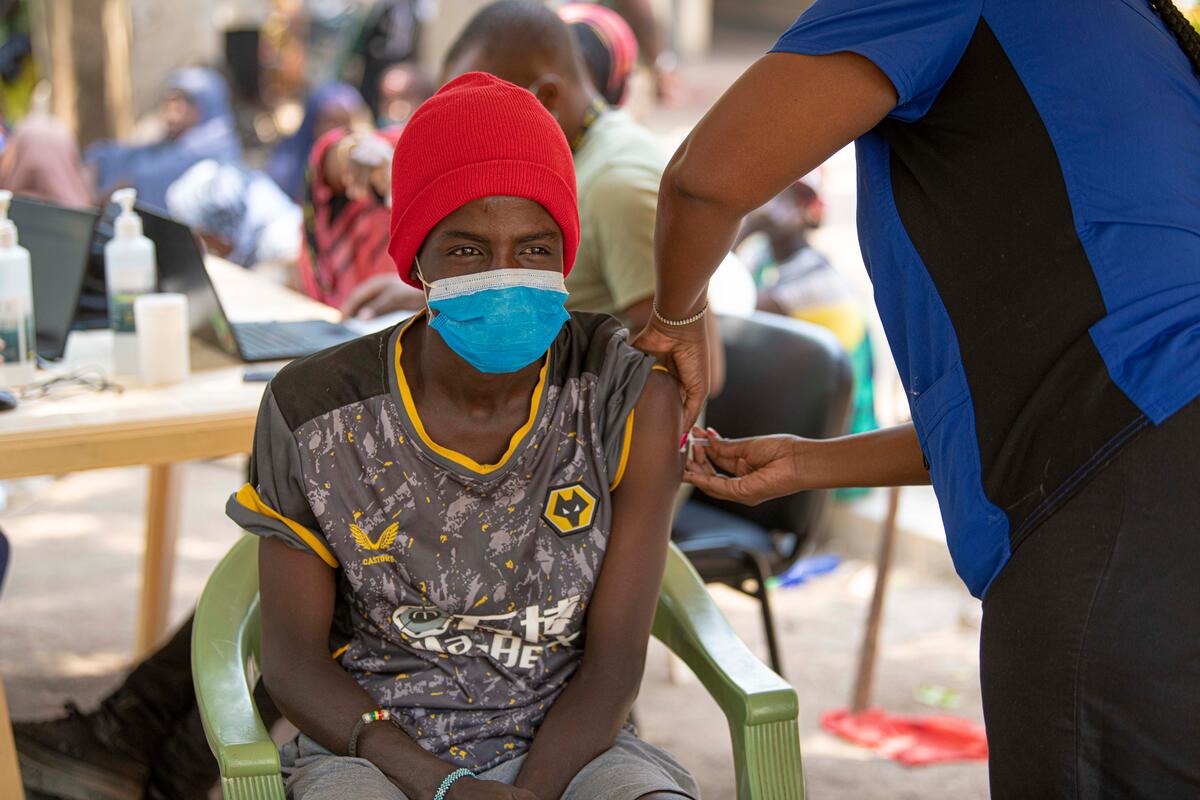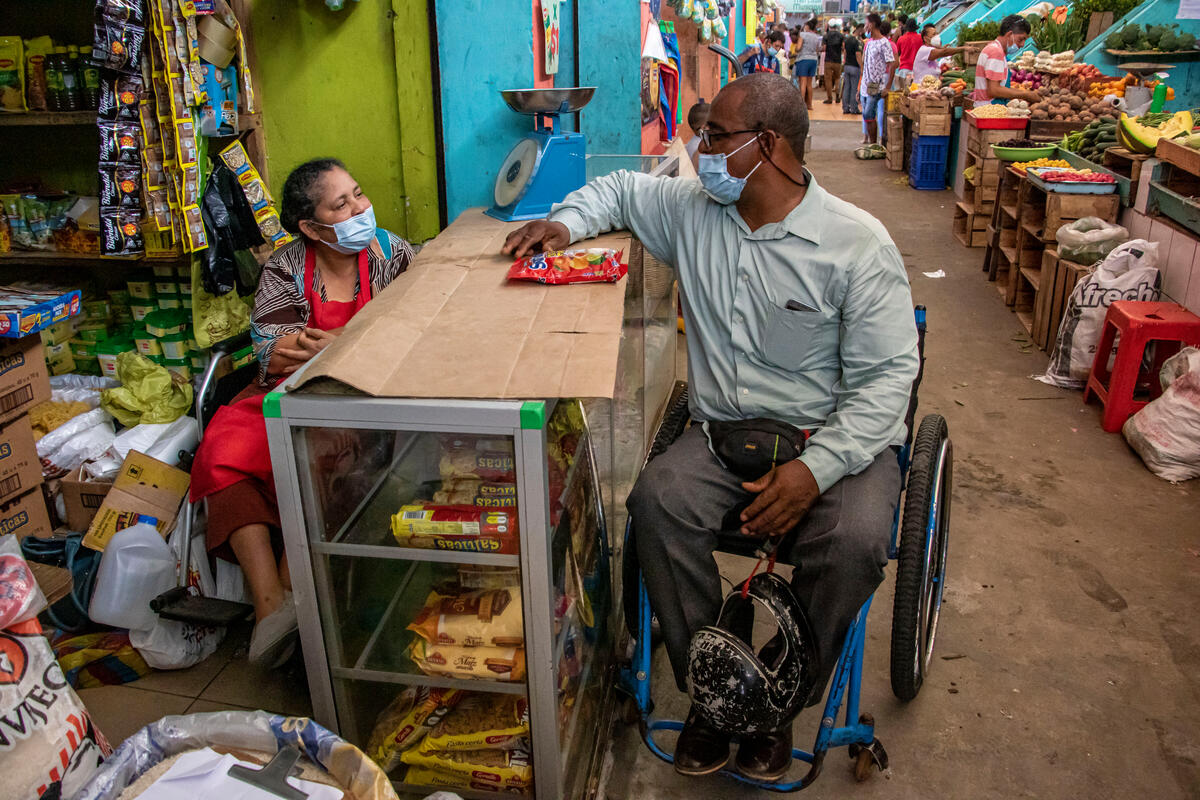Bringing health care to the people in Colombia's conflict zone
Bringing health care to the people in Colombia's conflict zone

LANDÁZURI, Colombia (UNHCR) - "Doctor, can you please see my three children now, because I have another five waiting for me at home," said Euclides Chaparro* to the dentist who had come to his village from the Landázuri Hospital. He spoke in the anguished tone of a father who cannot afford to take his eight children to the doctor.
The dentist, together with two bacteriologists, four general practitioners, three nurses, an assortment of medicines, six stretchers and an ambulance, had arrived on November 8 at the locality of San Pedro in Landázuri, in the Colombian province of Santander, north of the capital Bogota. The health brigade was organised by UNHCR and the Programme for Development and Peace in the Magdalena Medio, together with the Landázuri Hospital, the Colombian Red Cross and the local population at risk of displacement.
Over the weekend, the brigade treated 419 cases - including children, youth, women and the elderly - in this isolated conflict zone where the nearest hospital is hours away and where irregular armed groups fight for control. As a community leader explained, "Clashes between armed groups, long distances between communities, a rugged jungle terrain and the lack of doctors and health facilities put health care beyond the reach of our communities."
According to the director of the Landázuri Hospital, 70 percent of the population of Landázuri - some 17,500 persons - have no access to basic health care; 69 percent are not covered by any social security; only 20 percent of children have been vaccinated and 89 percent of children have dental problems.
"This brigade is only a first step," said UNHCR field officer Stefano Feliciani. "It has not yet solved all the health problems in the zone but it has resulted in the community and the municipal authorities organising themselves with UNHCR's help in order to improve access to health care here."
For Dora Mendoza,* a community leader, the health brigade brought hope "despite the lack of health assistance and despite the fact that most doctors have deserted this zone. Now the community has medicine again and a doctor has treated my father."
The brigade was followed the next day by a meeting between the community, local authorities - including the local ombudsman and a representative from the governmental agency in charge of assisting internally displaced persons (IDPs), the Red de Solidaridad Social - national and international organisations working in the zone, health workers and members of the Catholic church. During the meeting, it was agreed that the three local health posts will be staffed and that resources will be sought to continue to provide basic health assistance in the area.
In Colombia, there are over a million IDPs registered by the government. Specialised non-governmental organisations estimate that over three million people have been driven from their homes since 1985 by the conflict. UNHCR supports the efforts of the Colombian government and society to protect and assist IDPs and communities at risk of displacement.
By Ana María Rodríguez
UNHCR Colombia
* Names have been changed to protect the identity of those interviewed.









